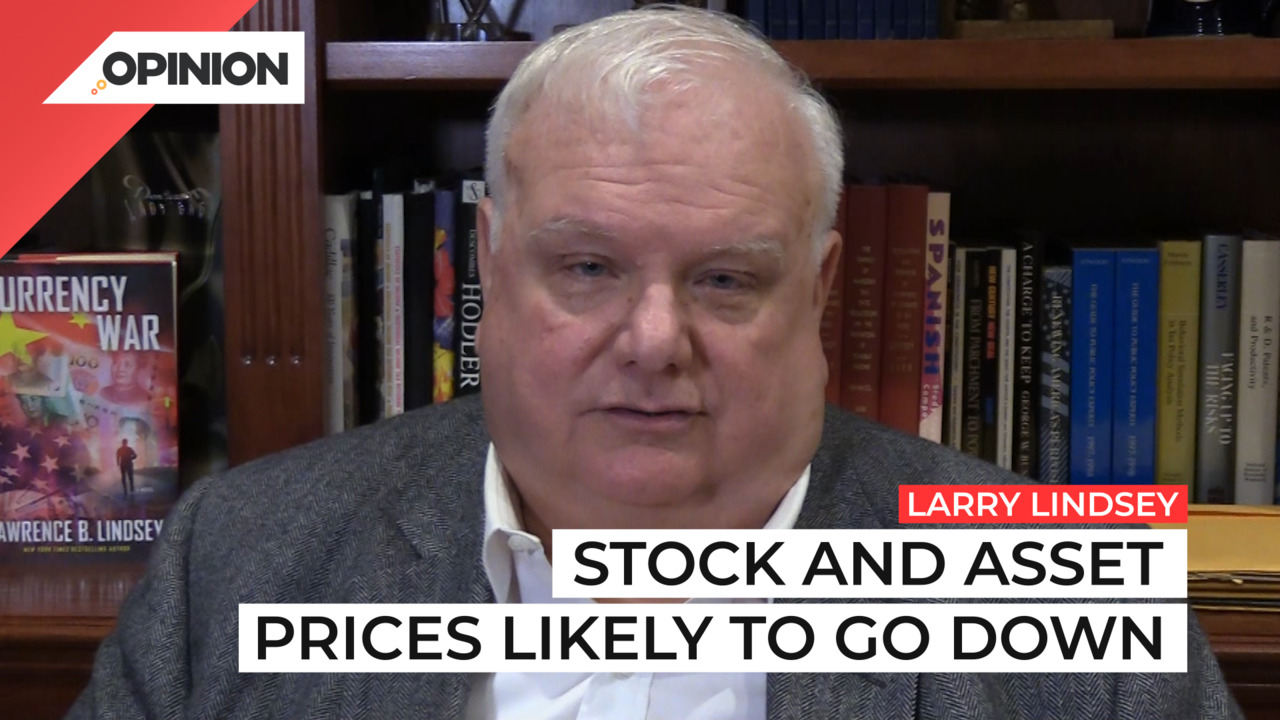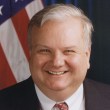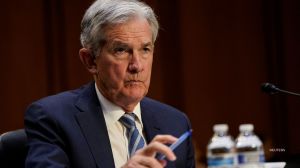
Commentary
-
Our commentary partners will help you reach your own conclusions on complex topics.
I’ve spent 40 years here in the swamp, I mean, DC. And the most important thing I’ve learned is that decisions are largely made by institutional credibility. Institutions have self interests just like people do. And they end up pursuing them, even though they’re not a single individual, it’s a group. We just saw that with regard to Chairman Powell speech at Jackson Hole, Wyoming. The problem was the Federal Reserve, and the chairman had lost a lot of credibility. At their July meeting, the chairman gave a press conference in which he really didn’t sound very serious about fighting inflation, or more precisely, markets did not believe he was serious. Probably the most difficult line he said, was that a two and a half percent federal funds rate which they had just gotten to, was the neutral level. Well, that’s really not true. The two and a half percent neutrality assumes we have only 2% inflation. But we don’t have 2% inflation, we have 8% inflation. So saying two and a half percent was neutral, was kind of ridiculous, and it was confusing two markets. So to restore credibility, first, the Feds send out a lot of speakers to quote clarify. And then in Jackson Hole, Chairman Powell clarified it himself and I quote, in current circumstances, with inflation running far above 2%, and extremely tight labor markets, estimates of long run neutral are not a place to stop. In case you missed it, that means we’re going to raise rates going forward and probably raise them a lot. Powell said a few other things. Some people in markets speculated that they were going to move away from their 2% target inflation rate. And that would allow them to target higher inflation and do less rate increasing. He explicitly said that was not going to happen. Second, Powell said we’re going to have a sustained period of below trend growth. What that means is a long period of recession or semi recession. And he said that really was not going to stop the Fed. And third, he said, we are in for pain, in the form of higher unemployment, pain to businesses. He called these unfortunate costs. But they were not as bad as what would happen if the Fed didn’t act message. The Fed is willing to tolerate pain in the economy, in order to carry out his anti inflation message. It was a powerful speech. The markets now believe him. On the day of the speech, the Dow Jones Industrial Index fell 1000 points and has been dropping ever since. In addition, the Fed is taking money out of the system by getting rid of some of the bonds that had bought in what’s called the quantitative easing period. It’s now lowering the amount of bonds they hold by almost $100 billion a month. Well, quantitative easing sent asset prices up. Now we have quantitative pricing. It’s not hard to figure out if they’re doing the opposite of what sent stock prices up. It’s likely to send stock prices and other asset prices down. So Chairman Powell has regained institutional credibility. People in the real world should realize that and should adjust their own behavior accordingly.
-
Election 2024 will boil down to the Great Lakes states
Pollsters and pundits have been engaged in a long debate about how Biden or Trump might win the 2024 election, with much of their focus spent on the “swing state” electoral battlegrounds. While the winners of Alabama or California may be obvious, for instance, who wins Pennsylvania is a more difficult question. Watch the above…
-
Why the Fed should consider Theory of Reflexivity when fixing policy
The Theory of Reflexivity, often used in the context of economics and financial markets, implies that investors don’t base their decisions on reality but on their perceptions of reality. This creates a feedback loop where investors’ perceptions influence economic fundamentals, which in turn alter investor perceptions. Watch the above video as Straight Arrow News contributor…
-
Federal Reserve surpassed its own wildest expectations
On May 14, the U.S. Bureau of Labor Statistics released the most current producer price index (PPI) report, which showed an increase of 0.5% month-over-month in April. After the report’s release, U.S. Federal Reserve chairman Jerome “Jay” Powell said that while he believes the current policy rate is restrictive by many measures, the Fed needs…
-
Polls give slight advantage to Trump in Electoral College
With the U.S. general election only six months away, leading candidates President Joe Biden and former President Donald Trump appear to be engaged in a very close contest. In their 2020 race, the winner of the Electoral College was ultimately determined by a relative handful of voters in just a few swing states, even though…
-
College sports is big money but not everyone benefits
March Madness has wrapped up and Caitlin Clark has emerged as a household name as well as a wealthy student athlete. Earning over $3 million throughout her college career, her success stands in stark contrast to the previous notion that collegiate athletes shouldn’t earn anything beyond their scholarship. Straight Arrow News contributor Larry Lindsey examines…
Latest Opinions
-
 U.S. Department of Defense
U.S. Department of Defense
Congress still trying to figure out how to reduce wasteful military spending
-
 DVIDS
DVIDS
US Navy, Air Force making waves with new weapons at RIMPAC
-
 Getty Images
Getty Images
Israeli PM Netanyahu meets with Trump at Mar-a-Lago
-
 Getty Images
Getty Images
Growing US nuclear power resurgence reaches the nation’s heartland
-
 Getty Images
Getty Images
Beer from the sun, other solar thermal projects get government funding
Popular Opinions
-
In addition to the facts, we believe it’s vital to hear perspectives from all sides of the political spectrum.



